November 12, 2023, 8:18 pm
![]()
PLK1(serine/threonine protein kinase) inhibitors, a cancer drug could help treat a variety of inflammatory diseases, such as medlinkgout/medlink, heart failure, cardiomyopathy, and medlinkatrial fibrillation/medlink. PLK1 inhibits the molecule - 'NLRP3 inflammasome' which plays a crucial role in inducing inflammation in these conditions.
This new study was conducted by researchers at the University of Cambridge and published in the IJournal of Clinical Investigation/I (!--ref1--)....
↧
↧
November 12, 2023, 8:18 pm
![]()
medlinkHeart attacks/medlink, known as acute myocardial infarction (MI), stand as a prominent global cause of mortality. A recently published article introduces a four-stage classification of heart attacks centered on heart muscle damage (!--ref1--).
The research published in iCanadian Journal of Cardiology/i led by a distinguished group of experts, has the potential to enhance risk assessment for heart attack patients and pave the way for the development of injury-stage-specific and tissue pathology-based therapies....
↧
November 12, 2023, 8:18 pm
![]()
bHighlights:/b
ul class="group-list"
li The menopause transition can increase the risk of heart disease among postmenopausal women, emphasizing the need for heart-healthy practices during this phase /li
li The American Heart Association's Go Red for Women campaign advocates for women's heart health, emphasizing the importance of tailored heart-healthy approaches at every life stage /li
li Expert tips include regular health check-ups, mindful eating, strength training, and ...
↧
November 12, 2023, 8:18 pm
![]()
bHighlights:/b
ul class="group-list"
li Air pollution may not directly cause heart attacks but significantly contributes to the conditions that lead to them /h2
li Pre-existing diseases, such as coronary artery disease or hypertension, are exacerbated by air pollution, increasing the risk of heart attacks /h2
li Air pollution indirectly affects heart health by influencing lifestyle factors like physical activity, sleep, and stress
/li/ul
medlinkAir pollution/medlink ...
↧
November 12, 2023, 8:18 pm
![]()
Being exposed to severely polluted air elevates the likelihood of succumbing to fatal medlinkheart attacks/medlink, cautioned Dr. Deepak Krishnamurthy, a senior interventional cardiologist at Bengaluru's Sakra World Hospital (!--ref1--).
In a post on X, the cardiologist wrote that medlinkair pollution/medlink is an important and under-recognized risk factor for cardiovascular events (heart attacks)."Higher levels of fine particulate matter (PM2.5) lead to endothelial dysfunction and ...
↧
↧
November 12, 2023, 8:18 pm
![]()
bHighlights:/b
ul class="group-list"
li IgE antibodies to common foods linked to increased cardiovascular mortality /li
li 15% of Americans have IgE to common food allergens, raising heart disease risk /li
li Food sensitivity, not clinical allergy, shows strong associations with heart disease
/li/ul
Sensitivity to common food allergens like cow's milk and peanuts may be an important and previously overlooked cause of heart disease, according to new research - and the ...
↧
November 12, 2023, 8:18 pm
![]()
Pregnant women with Sjogren's or lupus syndrome have high levels of Anti-Ro/SSA antibodies (anti-Sjogren's-syndrome-related antigen A auto-antibodies, also called anti-Ro antibodies) which are associated with fetal atrioventricular block (AVB). In an AV block, electric signals from the heart's atria do not reach the ventricles, resulting in life-long pacing and could be lethal.
The findings of this clinical trial were published in IArthritis (and) Rheumatology/I. (!--ref1--)
h2Pregnancy Sjogren's ...
↧
November 12, 2023, 8:18 pm
![]()
In a new study participants with less than a high school education were 1.4 to 1.7 times more likely to undergo a cardiovascular event compared to their college-educated counterparts, according to study by University of Pittsburgh School of Medicine and Northwestern University Feinberg School of Medicine researchers and published in iJAMA Cardiology./i
To quantify the extent to which education shapes lifetime risk for cardiovascular disease events, such as a heart attack or stroke, a team led by Dr....
↧
November 12, 2023, 8:18 pm
![]()
While heart disease risks such as high cholesterol, high blood pressure, diabetes, and smoking are widely recognized, not all heart attack patients exhibit these factors. Previous research highlights that 14% to 27% of heart attack patients lack these standard risk factors.
A recent study by Intermountain Health in Salt Lake City reveals a commonality among such patients-they tend to have elevated levels of coronary calcium. The study suggests that scans detecting this plaque buildup should ...
↧
↧
November 12, 2023, 8:18 pm
![]()
An overlooked factor in heart disease, sensitivity to common food allergens like dairy and peanuts may elevate the risk of cardiovascular death, even in individuals without apparent allergies, a new study has said.
According to the study published in the journal of iAllergy and Clinical Immunology,/i this increased risk may be comparable to -- or even exceed -- the risks posed by smoking, diabetes, and rheumatoid arthritis.
h2 Antibody Response to Common Foods /h2
Researchers ...
↧
November 13, 2023, 8:23 pm
![]()
Administering a generous blood transfusion to anemic patients following a medlinkheart attack/medlink may decrease the risk of recurrence and enhance survival rates, stated a medlinkclinical trial/medlink led by physician Jeffrey L. Carson, distinguished professor of medicine at Rutgers Robert Wood Johnson Medical School (!--ref1--).
The results of the trial, Myocardium Infarction and Transfusion (MINT), were published today in the iNew England Journal of Medicine./i Maria Mori ...
↧
November 13, 2023, 8:23 pm
![]()
Genetic screening has the capability to identify individuals with familial hypercholesterolemia (FH), making them eligible for treatment that may prevent medlinkheart attacks/medlink, medlinkstrokes/medlink, and fatalities, stated research from the Intermountain Health in Salt Lake City (!--ref1--).
h2 What is Familial hypercholesteremia? /h2
medlinkFamilial hypercholesteremia/medlink (FH) is an inherited condition that affects about 1 in 250 people, and often shows no signs until they have a heart attack....
↧
November 13, 2023, 8:23 pm
![]()
Short-term spikes in air pollution pose a concern for many, particularly individuals with diagnosed or undiagnosed medlinkheart disease/medlink. Beyond pollution from vehicles and industries, recent research by Intermountain Health in Salt Lake City reveals that pollutants confined in lower, colder air layers in mountainous regions may pose an elevated risk for this population. Additionally, wildfire smoke from distant locations can also impact the risk for individuals with heart conditions (!--ref1--)....
↧
↧
November 29, 2023, 12:59 am
![]()
bHighlights:/b
ul class="group-list"
li Modern sedentary jobs and screen-centric leisure contribute to obesity, high blood pressure, and elevated cholesterol levels, escalating the risk of heart attacks in young adults /li
li The contemporary diet, marked by processed foods and high sugar intake, fuels obesity, diabetes, and hypertension, major precursors to heart disease, intensifying the risk among the youth /li
li The pressures of modern life, coupled with stress, unhealthy ...
↧
November 29, 2023, 12:59 am
![]()
Health experts warn that elevated medlinkhemoglobin/medlink levels may increase the likelihood of heart attack, stroke, and medlinkblood clots/medlink.
Known as polycythemia -- a condition where red cells increase in the human body due to abnormalities in the bone marrow. These excess cells thicken the blood, slowing its flow, and can cause serious problems like blood clots.
Other causes of polycythemia include medlinksmoking/medlink, diseases of the heart or lungs, and living ...
↧
November 29, 2023, 12:59 am
![]()
bHighlights:/b
ul class="group-list"
li Natural remedies and lifestyle changes can effectively lower LDL cholesterol, promoting overall heart health /li
li Incorporate beverages like ginger-lemon water, turmeric milk, honey-garlic water, amla juice, tomato juice, and green tea into your routine /li
li Combine a balanced diet and regular exercise with these drinks for optimal cholesterol management
/li/ul
medlinkCholesterol/medlink is a fatty molecule that is essential ...
↧
November 29, 2023, 12:59 am
![]()
bHighlights:/bul class="group-list punch-points"li
Contrary to expectations, COVID-19 vaccination was not associated with increased risk of heart disease/li
liFactors such as binge drinking, past COVID-19 hospitalization, and family history correlated with unexplained sudden deaths /li
liThe study's underscore the need for continued global research/li/ul
Gujarat's Navratri celebrations took a tragic turn this year as multiple incidents of sudden medlinkdeath/medlink ...
↧
↧
December 2, 2023, 1:08 am
![]()
Verily Study Watch - a first-ever FDA-approved clinically prescribed wrist-worn device, precisely detects atrial fibrillation, (Afib) an irregular heartbeat, that is known to raise the risk of heart attack and stroke. Using a technique called photoplethysmography, the watch accurately monitors heart rhythm while avoiding false positive results.
The results are published in the IJournal of the American Heart Association/I (!--ref1--)
h2Clinical Smart-Watch Proven Reliable to Monitor Atrial ...
↧
December 5, 2023, 1:13 am
![]()
In the long-term, individuals with Long COVID are prone to enduring cardiac issues like chest pain and irregular heart rhythms.
Prior reviews synthesized findings of studies on long-term cardiac complications of COVID-19, said researchers from the University of Washington. But, the reporting and methodological quality of these studies has not been systematically evaluated. To understand, the team reviewed 150 studies on 57 cardiac complications that persisted for at least 1 month after COVID-19 infection....
↧
December 8, 2023, 1:30 am
![]()
In 2022, the National Crime Records Bureau (NCRB) reported a 12.5% rise in medlinkheart attack/medlink-related fatalities compared to the previous year, highlighting an alarming increase in deaths.
Following medlinkCOVID-19/medlink, the trend has made news. Several studies have connected the virus to poor heart function. According to the data, the rate of sudden deaths has also increased in 2022.
h2 Alarmingly High Sudden Heart Attack Death Toll Reflects Troubling Upward Trend ...
↧
December 11, 2023, 1:45 am
![]()
Statins, the widely prescribed medications for high cholesterol, lowered the chances of heart attack and stroke in two high-risk groups for heart disease: elderly individuals with chronic kidney disease and individuals with or without frailty. (!--ref1--)
The results of the two new studies provide additional context to a longstanding debate among the medical community about whether there are benefits to initiating statin use in people who don't already have high cholesterol or cardiovascular disease....
↧
↧
December 18, 2023, 1:56 am
![]()
Emphasizing year-round vigilance, the American Heart Association warns of the elevated risk of fatal 'medlinkholiday heart attacks/medlink' during the winter holidays, thereby stressing the need to recognize heart attack signs and actively reduce risks, especially in the upcoming weeks (!--ref1--).
Several scientific studies confirm this deadly phenomenon.
ul class=group-list" li The study published in i Circulation, /i the flagship journal of the American Heart Association reported that more cardiac deaths occur in the U....
↧
December 18, 2023, 1:56 am
![]()
A groundbreaking University of Maryland School of Medicine study unveiled the vital role of cytoglobin, akin to medlinkhemoglobin/medlink, in shaping the heart's left-right pattern and asymmetric organ development. Published in Nature Communications, this discovery holds promise for future therapies targeting these defect-causing processes.
The team used medlinkCRISPR gene/medlink editing technologies to knock out the cytoglobin gene in zebrafish. The lack of cytoglobin caused the development ...
↧
December 19, 2023, 2:02 am
![]()
One in six exhibited indications linked to decreased heart function, stated study with 281 elite athletes from Australia and Belgium. Genetic scrutiny published in iCirculation/i by scientists from both countries disclosed an abundance of genes associated with heart muscle disease in these athletes.
Thus, a genetic predisposition may be 'stressed' by exercise to cause profound heart changes. The international collaboration will continue to monitor the athletes over the long-term to determine the consequences on their heart health....
↧
![]()
bHighlights:/bul class="group-list punch-points"li
Research challenges the notion that red wine is essential for heart health, disputing the believed benefits of compounds like resveratrol/li
liThe traditional link lacks solid scientific evidence, emphasizing the importance of a holistic, healthy lifestyle/li
liModeration in alcohol consumption remains crucial, with experts recommending limits associated with alcohol/li/ul
For years, medlinkred wine/medlink has occupied ...
↧
↧
![]()
bHighlights:/b
ul class="group-list"
li Navigate winter risks with strategies for temperature-induced stress and reduced physical activity /li
li Make smart lifestyle choices amidst holiday indulgences for heart-healthy habits /li
li Embrace layered clothing, regular exercise, and a heart-friendly diet for holistic winter wellness
/li/ul
As the medlinkwinter/medlink cold takes hold, prioritizing medlinkheart health/medlink becomes crucial to prevent fatal heart attacks (!--ref1--)....
↧
![]()
Extended medlinkCovid/medlink can cause notable alterations in both resting heart rate variability (HRV) and HRV during deep breathing.
h2 What is Dysautonomia? /h2
"medlinkDysautonomia/medlink, characterized by dysregulation of HRV, may explain the persistent symptoms observed in Long Covid patients," said the researchers from University of Santa Cruz do Sul, in the paper published in the journal Scientific Reports. "There is currently a lack of evidence demonstrating how ...
↧
![]()
Heart failure pandemic is anticipated by Japanese researchers in the aftermath of medlinkCOVID-19/medlink, urging the imperative creation of preventive strategies (!--ref1--).
COVID infections have raised the risk of medlinkheart failure/medlink from persistent viral infection in their hearts, even without developing heart disease, said the team, including researchers from Riken, Japan's largest scientific institute, i The Mainichi /i reported.
b Post-COVID pandemic, there ...
↧
![]()
Post the medlinkCovid pandemic/medlink, India grapples with a surge in deaths, particularly from medlinkheart attacks/medlink, prompting speculation about the emergence of a potential heart failure pandemic (!--ref1--).
In the most recent case, a Class IX student, Yogesh Singh, collapsed on his way to the classroom at a private school in Jaipur and succumbed to suspected cardiac arrest.
A week earlier, a b 13-year-old girl, a Class VII student, died after she suffered a heart attack ...
↧
↧
![]()
Eating breakfast later in the day or skipping it is linked to an increased risk of cardiovascular diseases, with the risk increasing by 6% for every hour delay. Similarly, dining late after 9 p.m. is linked to a 28 percent higher risk of cerebrovascular diseases, including stroke.
These findings were revealed by researchers at the French research institute INRAE - National Research Institute for Agriculture, Food and Environment. The research recommended eating breakfast at 8 a.m. and dinner at 8 p....
↧
January 19, 2024, 2:42 am
![]()
Between 1999 and 2019, deaths related to substance use and medlinkcardiovascular disease/medlink experienced an annual increase of 4%, even as the total number of cardiovascular disease fatalities declined, stated new research published today in the iJournal of the American Heart Association,/i an open access, peer-reviewed journal of the American Heart Association.
"The study results were generally consistent with what we see in our clinic while caring for patients with cardiovascular ...
↧
January 19, 2024, 2:42 am
![]()
It is well known that substantial weight loss using diet and lifestyle can reverse medlinktype 2 diabetes/medlink. A new research shows the subsequent impact of remission of diabetes had a 40% lower rate of medlinkcardiovascular disease (CVD)/medlink and a 33% lower rate of medlinkchronic kidney disease (CKD)/medlink.
The study was conducted by Professor Edward Gregg, Head of the School of Population Health, RCSI University of Medicine and Health Sciences, Dublin, Ireland, and colleagues ...
↧
January 26, 2024, 2:53 am
![]()
Leveraging genetic mapping, scientists pinpointed a gene on human chromosome 21 named Dyrk1a. In the mouse model of Down syndrome, having three copies of this gene leads to heart defects. While Dyrk1a has been associated with cognitive impairment and facial changes in Down syndrome, its involvement in heart development was previously unknown.
Down syndrome affects around 1 in 800 new births and is caused by an extra third copy of chromosome 21. About half of babies born with Down syndrome ...
↧
↧
January 27, 2024, 2:56 am
![]()
Cases of heart attacks and strokes have nearly doubled in the past 15 days, due to cold weather, prompting experts to caution individuals with cardiovascular issues to take proactive measures and seek medical attention.
h2Alarming Rise of Cardiovascular Risks During Winter/h2
Experts are cautioning individuals with hypertension, heart conditions, and the elderly to be vigilant as the cold weather may worsen the existing cardiovascular issues.
At King George's Medical University (KGMU), an ...
↧
February 3, 2024, 3:14 am
![]()
An innovative machine learning approach- a subset of medlinkartificial intelligence/medlink, in combination with culminated human knowledge, can identify drugs that can effectively reduce detrimental scarring following a medlinkheart attack/medlink or other injuries. These findings were enumerated by researchers from the University of Virginia (!--ref1--).
h2Unlocking Post-Heart Attack Health with Machine Learning/h2
The new machine-learning tool has already found a promising candidate ...
↧
February 10, 2024, 3:38 am
![]()
Despite the protective effect of the recommended 150 minutes of weekly physical activity against medlinkcardiovascular disease/medlink, it falls short in offsetting the negative impact of medlinksugar-sweetened beverages/medlink.
Sugar-sweetened beverages are the largest source of added sugars in the North American diet. Their consumption is associated with a higher risk of cardiovascular disease, the world's leading cause of death.
"The marketing strategies for these drinks often show active people drinking these beverages....
↧
February 10, 2024, 3:38 am
![]()
Ponatinib, a potent drug to treat blood cancer or medlinkleukemia/medlink was found to trigger integrated stress response (IST) and harm the heart. Neutralizing ISR hyperactivation could prevent or reverse ponatinib-induced cardiotoxicity, potentially mitigating heart damage without compromising anti-tumor effects.
These findings were revealed by a study conducted by author Sang Ging Ong, assistant professor of pharmacology and medicine at UIC, and published in iCirculation Research/i (!--ref1--)....
↧
↧
February 13, 2024, 3:52 am
![]()
Sleep apnea is commonly found in patients undergoing cardio-oncology treatment, putting them at an elevated risk of developing medlinkcongestive heart failure/medlink due to cancer therapy, according to a new study presented at the American College of Cardiology (ACC) Advancing the Cardiovascular Care of the Oncology Patient course (!--ref1--).
h2Sleep Apnea: A New Marker for Heart Failure in Cancer Patients/h2
Sleep apnea is a disorder of altered breathing while asleep with two types, obstructive (OSA) or central (CSA)....
↧
February 14, 2024, 4:00 am
![]()
By utilizing the findings from a standard blood test and an online tool, individuals can ascertain their elevated risk of experiencing a medlinkheart attack/medlink within six months. This tool, created by a research team at Uppsala University, aims to boost patient motivation for adopting healthier lifestyles.
Heart attacks are the most common cause of death in the world and are increasing globally. Many high-risk people are not identified or do not take their preventive treatment. Now ...
↧
February 17, 2024, 4:04 am
![]()
bHighlights:/bul class="group-list punch-points"
liChikungunya virus poses an increased death risk from heart and kidney complications post-infection/li
liIndividuals face an eightfold higher likelihood of mortality during the initial week and remain twice as likely even three months post-infection /li
liVigilant monitoring and access to vaccines and treatments has the potential to reduce the mortality linked with this disease/li/ul
Chikungunya virus (CHIKV) poses a significant ...
↧
February 20, 2024, 4:12 am
![]()
Menopausal women (middle-aged women) who experience migraines, hot flashes, and night sweats may face an increased likelihood of suffering a medlinkheart attack/medlink, stroke, or other cardiovascular issues. However, taking proactive measures such as prioritizing adequate sleep, engaging in regular exercise, adopting a healthy diet, medlinkquitting smoking/medlink, and monitoring key health indicators like medlinkblood pressure/medlink, blood sugar, medlinkcholesterol/medlink, ...
↧
↧
February 20, 2024, 4:12 am
![]()
bHighlights:/bul class="group-list punch-points"li
Anabolic steroid misuse can raise heart disease risk in muscle-building young men/li
liHigh testosterone levels could trigger atrial fibrillation risk among young men with arrhythmogenic right ventricular cardiomyopathy, a genetic heart disease/li
liPublic awareness and education efforts are crucial in addressing and preventing the misuse of anabolic steroids/li/ul
The misuse of medlinkanabolic steroids/medlink (synthetic ...
↧
![]()
medlinkFinasteride/medlink, aka Propecia or Proscar, is widely used to address male pattern baldness and enlarged prostate. Remarkably, beyond its primary functions, the drug may offer an unexpected and potentially life-saving advantage by reducing cholesterol levels and lowering the overall risk of medlinkcardiovascular disease/medlink.
These findings from a new study at the University of Illinois was published in the iJournal of Lipid Research/i (!--ref1--).
h2Finasteride's New ...
↧
![]()
Scientific evidence confirms the positive impact of movement on aging bodies. A recent study challenges the popular belief of achieving 10,000 steps per day. The research, involving nearly 6,000 women aged 63-99, reveals that ban average of 3,600 steps at a normal pace correlates with a significant 26% reduction in the risk of medlinkheart failure/medlink./b (!--ref1--)
The observational study from the Women's Health Initiative specifically looked at accelerometer-measured medlinkphysical ...
↧
![]()
Cedars-Sinai Warns that 1 in 5 women is at risk for medlinkcardiovascular disease/medlink, thereby emphasizing lifestyle changes as crucial prevention tactics (!--ref1--).
Experts at the Smidt Heart Institute at Cedars-Sinai who have studied progress made over decades of research say there's still a long way to go before medical science fully understands how medlinkheart disease/medlink is different in women than men.
But there is hope, according to Natalie Bello, MD, MPH, director ...
↧
↧
![]()
bHighlights:/bul class="group-list punch-points"
liHigh protein intake is linked to increased risk of atherosclerosis/li
liPlant-based protein sources offer heart-healthy alternatives/li
liModeration in protein consumption is crucial for cardiovascular well-being/li/ul
A recent study conducted at the University of Pittsburgh and published in the journal iNature Metabolism/i has shed light on the potential risks associated with medlinkhigh protein/medlink intake ...
↧
![]()
An electrocardiographic imaging (ECGI) reusable vest shows promise in detecting early signs of an inherited heart condition - hypertrophic cardiomyopathy, before traditional tests can, potentially leading to earlier diagnosis and treatment.
This new study was led by UCL (University College London) researchers and published in the iJournal of the American College of Cardiology/i (!--ref1--).
h2Revolutionary ECGI Vest Advances Cardiac Screening/h2
The condition, called hypertrophic cardiomyopathy, ...
↧
![]()
bHighlights:/bul class="group-list punch-points"li
Sweetened beverages raise atrial fibrillation risk by 20%/li
liPure juices lower risk by 8%; water remains the safest choice/li
liPublic health urgency is required in reducing sweetened drink intake/li/ul
A new study has shed light on a concerning health risk associated with the consumption of artificially sweetened beverages. The research, which analyzed data from nearly 202,000 individuals, found a significant correlation ...
↧
![]()
Many adults aged 50 to 80 consume aspirin regularly to prevent heart attacks and strokes, although over half do not have cardiovascular disease, posing minimal preventive benefits and heightened bleeding risks (!--ref1--).
But many people aged 50 to 80 who said they take aspirin may not need to, the findings from the i University of Michigan National Poll on Healthy Aging /i suggest.
In all, 57% of people aged 50 to 80 who say they take aspirin regularly also said they don't have a history of cardiovascular disease....
↧
↧
![]()
bHighlights:/bul class="group-list punch-points"liAdditives like carrageenan are linked to blood sugar fluctuations/liliEven plant-based supplements can harbor allergens like carmine/liliDr. Granger advises scrutinizing labels for quality ingredients/li/ulMaintaining optimal health is a priority for many, the allure of supplements is undeniable. From promising younger-looking skin to better cognitive function, there seems to be a supplement catering to every health need. However, ...
↧
 PLK1(serine/threonine protein kinase) inhibitors, a cancer drug could help treat a variety of inflammatory diseases, such as medlinkgout/medlink, heart failure, cardiomyopathy, and medlinkatrial fibrillation/medlink. PLK1 inhibits the molecule - 'NLRP3 inflammasome' which plays a crucial role in inducing inflammation in these conditions.
This new study was conducted by researchers at the University of Cambridge and published in the IJournal of Clinical Investigation/I (!--ref1--)....
PLK1(serine/threonine protein kinase) inhibitors, a cancer drug could help treat a variety of inflammatory diseases, such as medlinkgout/medlink, heart failure, cardiomyopathy, and medlinkatrial fibrillation/medlink. PLK1 inhibits the molecule - 'NLRP3 inflammasome' which plays a crucial role in inducing inflammation in these conditions.
This new study was conducted by researchers at the University of Cambridge and published in the IJournal of Clinical Investigation/I (!--ref1--)....
 PLK1(serine/threonine protein kinase) inhibitors, a cancer drug could help treat a variety of inflammatory diseases, such as medlinkgout/medlink, heart failure, cardiomyopathy, and medlinkatrial fibrillation/medlink. PLK1 inhibits the molecule - 'NLRP3 inflammasome' which plays a crucial role in inducing inflammation in these conditions.
This new study was conducted by researchers at the University of Cambridge and published in the IJournal of Clinical Investigation/I (!--ref1--)....
PLK1(serine/threonine protein kinase) inhibitors, a cancer drug could help treat a variety of inflammatory diseases, such as medlinkgout/medlink, heart failure, cardiomyopathy, and medlinkatrial fibrillation/medlink. PLK1 inhibits the molecule - 'NLRP3 inflammasome' which plays a crucial role in inducing inflammation in these conditions.
This new study was conducted by researchers at the University of Cambridge and published in the IJournal of Clinical Investigation/I (!--ref1--)....
 medlinkHeart attacks/medlink, known as acute myocardial infarction (MI), stand as a prominent global cause of mortality. A recently published article introduces a four-stage classification of heart attacks centered on heart muscle damage (!--ref1--).
The research published in iCanadian Journal of Cardiology/i led by a distinguished group of experts, has the potential to enhance risk assessment for heart attack patients and pave the way for the development of injury-stage-specific and tissue pathology-based therapies....
medlinkHeart attacks/medlink, known as acute myocardial infarction (MI), stand as a prominent global cause of mortality. A recently published article introduces a four-stage classification of heart attacks centered on heart muscle damage (!--ref1--).
The research published in iCanadian Journal of Cardiology/i led by a distinguished group of experts, has the potential to enhance risk assessment for heart attack patients and pave the way for the development of injury-stage-specific and tissue pathology-based therapies....
 bHighlights:/b
ul class="group-list"
li The menopause transition can increase the risk of heart disease among postmenopausal women, emphasizing the need for heart-healthy practices during this phase /li
li The American Heart Association's Go Red for Women campaign advocates for women's heart health, emphasizing the importance of tailored heart-healthy approaches at every life stage /li
li Expert tips include regular health check-ups, mindful eating, strength training, and ...
bHighlights:/b
ul class="group-list"
li The menopause transition can increase the risk of heart disease among postmenopausal women, emphasizing the need for heart-healthy practices during this phase /li
li The American Heart Association's Go Red for Women campaign advocates for women's heart health, emphasizing the importance of tailored heart-healthy approaches at every life stage /li
li Expert tips include regular health check-ups, mindful eating, strength training, and ...
 bHighlights:/b
ul class="group-list"
li Air pollution may not directly cause heart attacks but significantly contributes to the conditions that lead to them /h2
li Pre-existing diseases, such as coronary artery disease or hypertension, are exacerbated by air pollution, increasing the risk of heart attacks /h2
li Air pollution indirectly affects heart health by influencing lifestyle factors like physical activity, sleep, and stress
/li/ul
medlinkAir pollution/medlink ...
bHighlights:/b
ul class="group-list"
li Air pollution may not directly cause heart attacks but significantly contributes to the conditions that lead to them /h2
li Pre-existing diseases, such as coronary artery disease or hypertension, are exacerbated by air pollution, increasing the risk of heart attacks /h2
li Air pollution indirectly affects heart health by influencing lifestyle factors like physical activity, sleep, and stress
/li/ul
medlinkAir pollution/medlink ...
 Being exposed to severely polluted air elevates the likelihood of succumbing to fatal medlinkheart attacks/medlink, cautioned Dr. Deepak Krishnamurthy, a senior interventional cardiologist at Bengaluru's Sakra World Hospital (!--ref1--).
In a post on X, the cardiologist wrote that medlinkair pollution/medlink is an important and under-recognized risk factor for cardiovascular events (heart attacks)."Higher levels of fine particulate matter (PM2.5) lead to endothelial dysfunction and ...
Being exposed to severely polluted air elevates the likelihood of succumbing to fatal medlinkheart attacks/medlink, cautioned Dr. Deepak Krishnamurthy, a senior interventional cardiologist at Bengaluru's Sakra World Hospital (!--ref1--).
In a post on X, the cardiologist wrote that medlinkair pollution/medlink is an important and under-recognized risk factor for cardiovascular events (heart attacks)."Higher levels of fine particulate matter (PM2.5) lead to endothelial dysfunction and ...
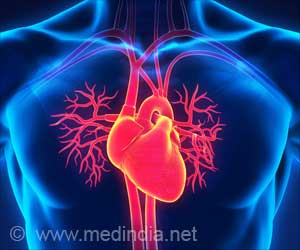 bHighlights:/b
ul class="group-list"
li IgE antibodies to common foods linked to increased cardiovascular mortality /li
li 15% of Americans have IgE to common food allergens, raising heart disease risk /li
li Food sensitivity, not clinical allergy, shows strong associations with heart disease
/li/ul
Sensitivity to common food allergens like cow's milk and peanuts may be an important and previously overlooked cause of heart disease, according to new research - and the ...
bHighlights:/b
ul class="group-list"
li IgE antibodies to common foods linked to increased cardiovascular mortality /li
li 15% of Americans have IgE to common food allergens, raising heart disease risk /li
li Food sensitivity, not clinical allergy, shows strong associations with heart disease
/li/ul
Sensitivity to common food allergens like cow's milk and peanuts may be an important and previously overlooked cause of heart disease, according to new research - and the ...
 Pregnant women with Sjogren's or lupus syndrome have high levels of Anti-Ro/SSA antibodies (anti-Sjogren's-syndrome-related antigen A auto-antibodies, also called anti-Ro antibodies) which are associated with fetal atrioventricular block (AVB). In an AV block, electric signals from the heart's atria do not reach the ventricles, resulting in life-long pacing and could be lethal.
The findings of this clinical trial were published in IArthritis (and) Rheumatology/I. (!--ref1--)
h2Pregnancy Sjogren's ...
Pregnant women with Sjogren's or lupus syndrome have high levels of Anti-Ro/SSA antibodies (anti-Sjogren's-syndrome-related antigen A auto-antibodies, also called anti-Ro antibodies) which are associated with fetal atrioventricular block (AVB). In an AV block, electric signals from the heart's atria do not reach the ventricles, resulting in life-long pacing and could be lethal.
The findings of this clinical trial were published in IArthritis (and) Rheumatology/I. (!--ref1--)
h2Pregnancy Sjogren's ...
 In a new study participants with less than a high school education were 1.4 to 1.7 times more likely to undergo a cardiovascular event compared to their college-educated counterparts, according to study by University of Pittsburgh School of Medicine and Northwestern University Feinberg School of Medicine researchers and published in iJAMA Cardiology./i
To quantify the extent to which education shapes lifetime risk for cardiovascular disease events, such as a heart attack or stroke, a team led by Dr....
In a new study participants with less than a high school education were 1.4 to 1.7 times more likely to undergo a cardiovascular event compared to their college-educated counterparts, according to study by University of Pittsburgh School of Medicine and Northwestern University Feinberg School of Medicine researchers and published in iJAMA Cardiology./i
To quantify the extent to which education shapes lifetime risk for cardiovascular disease events, such as a heart attack or stroke, a team led by Dr....
 While heart disease risks such as high cholesterol, high blood pressure, diabetes, and smoking are widely recognized, not all heart attack patients exhibit these factors. Previous research highlights that 14% to 27% of heart attack patients lack these standard risk factors.
A recent study by Intermountain Health in Salt Lake City reveals a commonality among such patients-they tend to have elevated levels of coronary calcium. The study suggests that scans detecting this plaque buildup should ...
While heart disease risks such as high cholesterol, high blood pressure, diabetes, and smoking are widely recognized, not all heart attack patients exhibit these factors. Previous research highlights that 14% to 27% of heart attack patients lack these standard risk factors.
A recent study by Intermountain Health in Salt Lake City reveals a commonality among such patients-they tend to have elevated levels of coronary calcium. The study suggests that scans detecting this plaque buildup should ...
 An overlooked factor in heart disease, sensitivity to common food allergens like dairy and peanuts may elevate the risk of cardiovascular death, even in individuals without apparent allergies, a new study has said.
According to the study published in the journal of iAllergy and Clinical Immunology,/i this increased risk may be comparable to -- or even exceed -- the risks posed by smoking, diabetes, and rheumatoid arthritis.
h2 Antibody Response to Common Foods /h2
Researchers ...
An overlooked factor in heart disease, sensitivity to common food allergens like dairy and peanuts may elevate the risk of cardiovascular death, even in individuals without apparent allergies, a new study has said.
According to the study published in the journal of iAllergy and Clinical Immunology,/i this increased risk may be comparable to -- or even exceed -- the risks posed by smoking, diabetes, and rheumatoid arthritis.
h2 Antibody Response to Common Foods /h2
Researchers ...
 Administering a generous blood transfusion to anemic patients following a medlinkheart attack/medlink may decrease the risk of recurrence and enhance survival rates, stated a medlinkclinical trial/medlink led by physician Jeffrey L. Carson, distinguished professor of medicine at Rutgers Robert Wood Johnson Medical School (!--ref1--).
The results of the trial, Myocardium Infarction and Transfusion (MINT), were published today in the iNew England Journal of Medicine./i Maria Mori ...
Administering a generous blood transfusion to anemic patients following a medlinkheart attack/medlink may decrease the risk of recurrence and enhance survival rates, stated a medlinkclinical trial/medlink led by physician Jeffrey L. Carson, distinguished professor of medicine at Rutgers Robert Wood Johnson Medical School (!--ref1--).
The results of the trial, Myocardium Infarction and Transfusion (MINT), were published today in the iNew England Journal of Medicine./i Maria Mori ...
 Genetic screening has the capability to identify individuals with familial hypercholesterolemia (FH), making them eligible for treatment that may prevent medlinkheart attacks/medlink, medlinkstrokes/medlink, and fatalities, stated research from the Intermountain Health in Salt Lake City (!--ref1--).
h2 What is Familial hypercholesteremia? /h2
medlinkFamilial hypercholesteremia/medlink (FH) is an inherited condition that affects about 1 in 250 people, and often shows no signs until they have a heart attack....
Genetic screening has the capability to identify individuals with familial hypercholesterolemia (FH), making them eligible for treatment that may prevent medlinkheart attacks/medlink, medlinkstrokes/medlink, and fatalities, stated research from the Intermountain Health in Salt Lake City (!--ref1--).
h2 What is Familial hypercholesteremia? /h2
medlinkFamilial hypercholesteremia/medlink (FH) is an inherited condition that affects about 1 in 250 people, and often shows no signs until they have a heart attack....
 Short-term spikes in air pollution pose a concern for many, particularly individuals with diagnosed or undiagnosed medlinkheart disease/medlink. Beyond pollution from vehicles and industries, recent research by Intermountain Health in Salt Lake City reveals that pollutants confined in lower, colder air layers in mountainous regions may pose an elevated risk for this population. Additionally, wildfire smoke from distant locations can also impact the risk for individuals with heart conditions (!--ref1--)....
Short-term spikes in air pollution pose a concern for many, particularly individuals with diagnosed or undiagnosed medlinkheart disease/medlink. Beyond pollution from vehicles and industries, recent research by Intermountain Health in Salt Lake City reveals that pollutants confined in lower, colder air layers in mountainous regions may pose an elevated risk for this population. Additionally, wildfire smoke from distant locations can also impact the risk for individuals with heart conditions (!--ref1--)....
 bHighlights:/b
ul class="group-list"
li Modern sedentary jobs and screen-centric leisure contribute to obesity, high blood pressure, and elevated cholesterol levels, escalating the risk of heart attacks in young adults /li
li The contemporary diet, marked by processed foods and high sugar intake, fuels obesity, diabetes, and hypertension, major precursors to heart disease, intensifying the risk among the youth /li
li The pressures of modern life, coupled with stress, unhealthy ...
bHighlights:/b
ul class="group-list"
li Modern sedentary jobs and screen-centric leisure contribute to obesity, high blood pressure, and elevated cholesterol levels, escalating the risk of heart attacks in young adults /li
li The contemporary diet, marked by processed foods and high sugar intake, fuels obesity, diabetes, and hypertension, major precursors to heart disease, intensifying the risk among the youth /li
li The pressures of modern life, coupled with stress, unhealthy ...
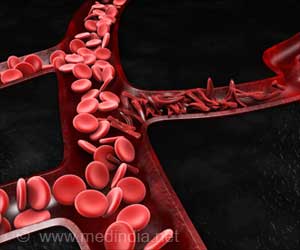 Health experts warn that elevated medlinkhemoglobin/medlink levels may increase the likelihood of heart attack, stroke, and medlinkblood clots/medlink.
Known as polycythemia -- a condition where red cells increase in the human body due to abnormalities in the bone marrow. These excess cells thicken the blood, slowing its flow, and can cause serious problems like blood clots.
Other causes of polycythemia include medlinksmoking/medlink, diseases of the heart or lungs, and living ...
Health experts warn that elevated medlinkhemoglobin/medlink levels may increase the likelihood of heart attack, stroke, and medlinkblood clots/medlink.
Known as polycythemia -- a condition where red cells increase in the human body due to abnormalities in the bone marrow. These excess cells thicken the blood, slowing its flow, and can cause serious problems like blood clots.
Other causes of polycythemia include medlinksmoking/medlink, diseases of the heart or lungs, and living ...
 bHighlights:/b
ul class="group-list"
li Natural remedies and lifestyle changes can effectively lower LDL cholesterol, promoting overall heart health /li
li Incorporate beverages like ginger-lemon water, turmeric milk, honey-garlic water, amla juice, tomato juice, and green tea into your routine /li
li Combine a balanced diet and regular exercise with these drinks for optimal cholesterol management
/li/ul
medlinkCholesterol/medlink is a fatty molecule that is essential ...
bHighlights:/b
ul class="group-list"
li Natural remedies and lifestyle changes can effectively lower LDL cholesterol, promoting overall heart health /li
li Incorporate beverages like ginger-lemon water, turmeric milk, honey-garlic water, amla juice, tomato juice, and green tea into your routine /li
li Combine a balanced diet and regular exercise with these drinks for optimal cholesterol management
/li/ul
medlinkCholesterol/medlink is a fatty molecule that is essential ...
 bHighlights:/bul class="group-list punch-points"li
Contrary to expectations, COVID-19 vaccination was not associated with increased risk of heart disease/li
liFactors such as binge drinking, past COVID-19 hospitalization, and family history correlated with unexplained sudden deaths /li
liThe study's underscore the need for continued global research/li/ul
Gujarat's Navratri celebrations took a tragic turn this year as multiple incidents of sudden medlinkdeath/medlink ...
bHighlights:/bul class="group-list punch-points"li
Contrary to expectations, COVID-19 vaccination was not associated with increased risk of heart disease/li
liFactors such as binge drinking, past COVID-19 hospitalization, and family history correlated with unexplained sudden deaths /li
liThe study's underscore the need for continued global research/li/ul
Gujarat's Navratri celebrations took a tragic turn this year as multiple incidents of sudden medlinkdeath/medlink ...
 Verily Study Watch - a first-ever FDA-approved clinically prescribed wrist-worn device, precisely detects atrial fibrillation, (Afib) an irregular heartbeat, that is known to raise the risk of heart attack and stroke. Using a technique called photoplethysmography, the watch accurately monitors heart rhythm while avoiding false positive results.
The results are published in the IJournal of the American Heart Association/I (!--ref1--)
h2Clinical Smart-Watch Proven Reliable to Monitor Atrial ...
Verily Study Watch - a first-ever FDA-approved clinically prescribed wrist-worn device, precisely detects atrial fibrillation, (Afib) an irregular heartbeat, that is known to raise the risk of heart attack and stroke. Using a technique called photoplethysmography, the watch accurately monitors heart rhythm while avoiding false positive results.
The results are published in the IJournal of the American Heart Association/I (!--ref1--)
h2Clinical Smart-Watch Proven Reliable to Monitor Atrial ...
 In the long-term, individuals with Long COVID are prone to enduring cardiac issues like chest pain and irregular heart rhythms.
Prior reviews synthesized findings of studies on long-term cardiac complications of COVID-19, said researchers from the University of Washington. But, the reporting and methodological quality of these studies has not been systematically evaluated. To understand, the team reviewed 150 studies on 57 cardiac complications that persisted for at least 1 month after COVID-19 infection....
In the long-term, individuals with Long COVID are prone to enduring cardiac issues like chest pain and irregular heart rhythms.
Prior reviews synthesized findings of studies on long-term cardiac complications of COVID-19, said researchers from the University of Washington. But, the reporting and methodological quality of these studies has not been systematically evaluated. To understand, the team reviewed 150 studies on 57 cardiac complications that persisted for at least 1 month after COVID-19 infection....
 In 2022, the National Crime Records Bureau (NCRB) reported a 12.5% rise in medlinkheart attack/medlink-related fatalities compared to the previous year, highlighting an alarming increase in deaths.
Following medlinkCOVID-19/medlink, the trend has made news. Several studies have connected the virus to poor heart function. According to the data, the rate of sudden deaths has also increased in 2022.
h2 Alarmingly High Sudden Heart Attack Death Toll Reflects Troubling Upward Trend ...
In 2022, the National Crime Records Bureau (NCRB) reported a 12.5% rise in medlinkheart attack/medlink-related fatalities compared to the previous year, highlighting an alarming increase in deaths.
Following medlinkCOVID-19/medlink, the trend has made news. Several studies have connected the virus to poor heart function. According to the data, the rate of sudden deaths has also increased in 2022.
h2 Alarmingly High Sudden Heart Attack Death Toll Reflects Troubling Upward Trend ...
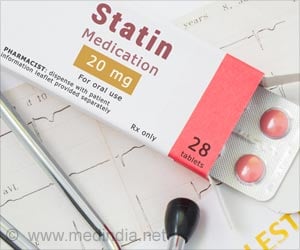 Statins, the widely prescribed medications for high cholesterol, lowered the chances of heart attack and stroke in two high-risk groups for heart disease: elderly individuals with chronic kidney disease and individuals with or without frailty. (!--ref1--)
The results of the two new studies provide additional context to a longstanding debate among the medical community about whether there are benefits to initiating statin use in people who don't already have high cholesterol or cardiovascular disease....
Statins, the widely prescribed medications for high cholesterol, lowered the chances of heart attack and stroke in two high-risk groups for heart disease: elderly individuals with chronic kidney disease and individuals with or without frailty. (!--ref1--)
The results of the two new studies provide additional context to a longstanding debate among the medical community about whether there are benefits to initiating statin use in people who don't already have high cholesterol or cardiovascular disease....
 Emphasizing year-round vigilance, the American Heart Association warns of the elevated risk of fatal 'medlinkholiday heart attacks/medlink' during the winter holidays, thereby stressing the need to recognize heart attack signs and actively reduce risks, especially in the upcoming weeks (!--ref1--).
Several scientific studies confirm this deadly phenomenon.
ul class=group-list" li The study published in i Circulation, /i the flagship journal of the American Heart Association reported that more cardiac deaths occur in the U....
Emphasizing year-round vigilance, the American Heart Association warns of the elevated risk of fatal 'medlinkholiday heart attacks/medlink' during the winter holidays, thereby stressing the need to recognize heart attack signs and actively reduce risks, especially in the upcoming weeks (!--ref1--).
Several scientific studies confirm this deadly phenomenon.
ul class=group-list" li The study published in i Circulation, /i the flagship journal of the American Heart Association reported that more cardiac deaths occur in the U....
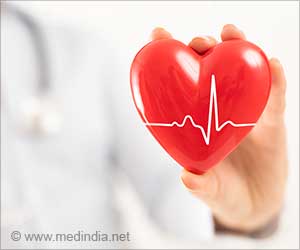 A groundbreaking University of Maryland School of Medicine study unveiled the vital role of cytoglobin, akin to medlinkhemoglobin/medlink, in shaping the heart's left-right pattern and asymmetric organ development. Published in Nature Communications, this discovery holds promise for future therapies targeting these defect-causing processes.
The team used medlinkCRISPR gene/medlink editing technologies to knock out the cytoglobin gene in zebrafish. The lack of cytoglobin caused the development ...
A groundbreaking University of Maryland School of Medicine study unveiled the vital role of cytoglobin, akin to medlinkhemoglobin/medlink, in shaping the heart's left-right pattern and asymmetric organ development. Published in Nature Communications, this discovery holds promise for future therapies targeting these defect-causing processes.
The team used medlinkCRISPR gene/medlink editing technologies to knock out the cytoglobin gene in zebrafish. The lack of cytoglobin caused the development ...
 One in six exhibited indications linked to decreased heart function, stated study with 281 elite athletes from Australia and Belgium. Genetic scrutiny published in iCirculation/i by scientists from both countries disclosed an abundance of genes associated with heart muscle disease in these athletes.
Thus, a genetic predisposition may be 'stressed' by exercise to cause profound heart changes. The international collaboration will continue to monitor the athletes over the long-term to determine the consequences on their heart health....
One in six exhibited indications linked to decreased heart function, stated study with 281 elite athletes from Australia and Belgium. Genetic scrutiny published in iCirculation/i by scientists from both countries disclosed an abundance of genes associated with heart muscle disease in these athletes.
Thus, a genetic predisposition may be 'stressed' by exercise to cause profound heart changes. The international collaboration will continue to monitor the athletes over the long-term to determine the consequences on their heart health....
 bHighlights:/bul class="group-list punch-points"li
Research challenges the notion that red wine is essential for heart health, disputing the believed benefits of compounds like resveratrol/li
liThe traditional link lacks solid scientific evidence, emphasizing the importance of a holistic, healthy lifestyle/li
liModeration in alcohol consumption remains crucial, with experts recommending limits associated with alcohol/li/ul
For years, medlinkred wine/medlink has occupied ...
bHighlights:/bul class="group-list punch-points"li
Research challenges the notion that red wine is essential for heart health, disputing the believed benefits of compounds like resveratrol/li
liThe traditional link lacks solid scientific evidence, emphasizing the importance of a holistic, healthy lifestyle/li
liModeration in alcohol consumption remains crucial, with experts recommending limits associated with alcohol/li/ul
For years, medlinkred wine/medlink has occupied ...
 bHighlights:/b
ul class="group-list"
li Navigate winter risks with strategies for temperature-induced stress and reduced physical activity /li
li Make smart lifestyle choices amidst holiday indulgences for heart-healthy habits /li
li Embrace layered clothing, regular exercise, and a heart-friendly diet for holistic winter wellness
/li/ul
As the medlinkwinter/medlink cold takes hold, prioritizing medlinkheart health/medlink becomes crucial to prevent fatal heart attacks (!--ref1--)....
bHighlights:/b
ul class="group-list"
li Navigate winter risks with strategies for temperature-induced stress and reduced physical activity /li
li Make smart lifestyle choices amidst holiday indulgences for heart-healthy habits /li
li Embrace layered clothing, regular exercise, and a heart-friendly diet for holistic winter wellness
/li/ul
As the medlinkwinter/medlink cold takes hold, prioritizing medlinkheart health/medlink becomes crucial to prevent fatal heart attacks (!--ref1--)....
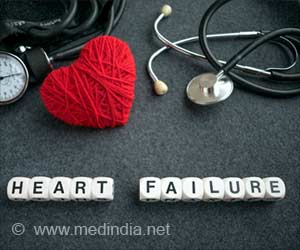 Extended medlinkCovid/medlink can cause notable alterations in both resting heart rate variability (HRV) and HRV during deep breathing.
h2 What is Dysautonomia? /h2
"medlinkDysautonomia/medlink, characterized by dysregulation of HRV, may explain the persistent symptoms observed in Long Covid patients," said the researchers from University of Santa Cruz do Sul, in the paper published in the journal Scientific Reports. "There is currently a lack of evidence demonstrating how ...
Extended medlinkCovid/medlink can cause notable alterations in both resting heart rate variability (HRV) and HRV during deep breathing.
h2 What is Dysautonomia? /h2
"medlinkDysautonomia/medlink, characterized by dysregulation of HRV, may explain the persistent symptoms observed in Long Covid patients," said the researchers from University of Santa Cruz do Sul, in the paper published in the journal Scientific Reports. "There is currently a lack of evidence demonstrating how ...
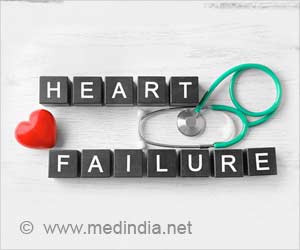 Heart failure pandemic is anticipated by Japanese researchers in the aftermath of medlinkCOVID-19/medlink, urging the imperative creation of preventive strategies (!--ref1--).
COVID infections have raised the risk of medlinkheart failure/medlink from persistent viral infection in their hearts, even without developing heart disease, said the team, including researchers from Riken, Japan's largest scientific institute, i The Mainichi /i reported.
b Post-COVID pandemic, there ...
Heart failure pandemic is anticipated by Japanese researchers in the aftermath of medlinkCOVID-19/medlink, urging the imperative creation of preventive strategies (!--ref1--).
COVID infections have raised the risk of medlinkheart failure/medlink from persistent viral infection in their hearts, even without developing heart disease, said the team, including researchers from Riken, Japan's largest scientific institute, i The Mainichi /i reported.
b Post-COVID pandemic, there ...
 Post the medlinkCovid pandemic/medlink, India grapples with a surge in deaths, particularly from medlinkheart attacks/medlink, prompting speculation about the emergence of a potential heart failure pandemic (!--ref1--).
In the most recent case, a Class IX student, Yogesh Singh, collapsed on his way to the classroom at a private school in Jaipur and succumbed to suspected cardiac arrest.
A week earlier, a b 13-year-old girl, a Class VII student, died after she suffered a heart attack ...
Post the medlinkCovid pandemic/medlink, India grapples with a surge in deaths, particularly from medlinkheart attacks/medlink, prompting speculation about the emergence of a potential heart failure pandemic (!--ref1--).
In the most recent case, a Class IX student, Yogesh Singh, collapsed on his way to the classroom at a private school in Jaipur and succumbed to suspected cardiac arrest.
A week earlier, a b 13-year-old girl, a Class VII student, died after she suffered a heart attack ...
 Eating breakfast later in the day or skipping it is linked to an increased risk of cardiovascular diseases, with the risk increasing by 6% for every hour delay. Similarly, dining late after 9 p.m. is linked to a 28 percent higher risk of cerebrovascular diseases, including stroke.
These findings were revealed by researchers at the French research institute INRAE - National Research Institute for Agriculture, Food and Environment. The research recommended eating breakfast at 8 a.m. and dinner at 8 p....
Eating breakfast later in the day or skipping it is linked to an increased risk of cardiovascular diseases, with the risk increasing by 6% for every hour delay. Similarly, dining late after 9 p.m. is linked to a 28 percent higher risk of cerebrovascular diseases, including stroke.
These findings were revealed by researchers at the French research institute INRAE - National Research Institute for Agriculture, Food and Environment. The research recommended eating breakfast at 8 a.m. and dinner at 8 p....
 Between 1999 and 2019, deaths related to substance use and medlinkcardiovascular disease/medlink experienced an annual increase of 4%, even as the total number of cardiovascular disease fatalities declined, stated new research published today in the iJournal of the American Heart Association,/i an open access, peer-reviewed journal of the American Heart Association.
"The study results were generally consistent with what we see in our clinic while caring for patients with cardiovascular ...
Between 1999 and 2019, deaths related to substance use and medlinkcardiovascular disease/medlink experienced an annual increase of 4%, even as the total number of cardiovascular disease fatalities declined, stated new research published today in the iJournal of the American Heart Association,/i an open access, peer-reviewed journal of the American Heart Association.
"The study results were generally consistent with what we see in our clinic while caring for patients with cardiovascular ...
 It is well known that substantial weight loss using diet and lifestyle can reverse medlinktype 2 diabetes/medlink. A new research shows the subsequent impact of remission of diabetes had a 40% lower rate of medlinkcardiovascular disease (CVD)/medlink and a 33% lower rate of medlinkchronic kidney disease (CKD)/medlink.
The study was conducted by Professor Edward Gregg, Head of the School of Population Health, RCSI University of Medicine and Health Sciences, Dublin, Ireland, and colleagues ...
It is well known that substantial weight loss using diet and lifestyle can reverse medlinktype 2 diabetes/medlink. A new research shows the subsequent impact of remission of diabetes had a 40% lower rate of medlinkcardiovascular disease (CVD)/medlink and a 33% lower rate of medlinkchronic kidney disease (CKD)/medlink.
The study was conducted by Professor Edward Gregg, Head of the School of Population Health, RCSI University of Medicine and Health Sciences, Dublin, Ireland, and colleagues ...
 Leveraging genetic mapping, scientists pinpointed a gene on human chromosome 21 named Dyrk1a. In the mouse model of Down syndrome, having three copies of this gene leads to heart defects. While Dyrk1a has been associated with cognitive impairment and facial changes in Down syndrome, its involvement in heart development was previously unknown.
Down syndrome affects around 1 in 800 new births and is caused by an extra third copy of chromosome 21. About half of babies born with Down syndrome ...
Leveraging genetic mapping, scientists pinpointed a gene on human chromosome 21 named Dyrk1a. In the mouse model of Down syndrome, having three copies of this gene leads to heart defects. While Dyrk1a has been associated with cognitive impairment and facial changes in Down syndrome, its involvement in heart development was previously unknown.
Down syndrome affects around 1 in 800 new births and is caused by an extra third copy of chromosome 21. About half of babies born with Down syndrome ...
 Cases of heart attacks and strokes have nearly doubled in the past 15 days, due to cold weather, prompting experts to caution individuals with cardiovascular issues to take proactive measures and seek medical attention.
h2Alarming Rise of Cardiovascular Risks During Winter/h2
Experts are cautioning individuals with hypertension, heart conditions, and the elderly to be vigilant as the cold weather may worsen the existing cardiovascular issues.
At King George's Medical University (KGMU), an ...
Cases of heart attacks and strokes have nearly doubled in the past 15 days, due to cold weather, prompting experts to caution individuals with cardiovascular issues to take proactive measures and seek medical attention.
h2Alarming Rise of Cardiovascular Risks During Winter/h2
Experts are cautioning individuals with hypertension, heart conditions, and the elderly to be vigilant as the cold weather may worsen the existing cardiovascular issues.
At King George's Medical University (KGMU), an ...
 Despite the protective effect of the recommended 150 minutes of weekly physical activity against medlinkcardiovascular disease/medlink, it falls short in offsetting the negative impact of medlinksugar-sweetened beverages/medlink.
Sugar-sweetened beverages are the largest source of added sugars in the North American diet. Their consumption is associated with a higher risk of cardiovascular disease, the world's leading cause of death.
"The marketing strategies for these drinks often show active people drinking these beverages....
Despite the protective effect of the recommended 150 minutes of weekly physical activity against medlinkcardiovascular disease/medlink, it falls short in offsetting the negative impact of medlinksugar-sweetened beverages/medlink.
Sugar-sweetened beverages are the largest source of added sugars in the North American diet. Their consumption is associated with a higher risk of cardiovascular disease, the world's leading cause of death.
"The marketing strategies for these drinks often show active people drinking these beverages....
 Ponatinib, a potent drug to treat blood cancer or medlinkleukemia/medlink was found to trigger integrated stress response (IST) and harm the heart. Neutralizing ISR hyperactivation could prevent or reverse ponatinib-induced cardiotoxicity, potentially mitigating heart damage without compromising anti-tumor effects.
These findings were revealed by a study conducted by author Sang Ging Ong, assistant professor of pharmacology and medicine at UIC, and published in iCirculation Research/i (!--ref1--)....
Ponatinib, a potent drug to treat blood cancer or medlinkleukemia/medlink was found to trigger integrated stress response (IST) and harm the heart. Neutralizing ISR hyperactivation could prevent or reverse ponatinib-induced cardiotoxicity, potentially mitigating heart damage without compromising anti-tumor effects.
These findings were revealed by a study conducted by author Sang Ging Ong, assistant professor of pharmacology and medicine at UIC, and published in iCirculation Research/i (!--ref1--)....
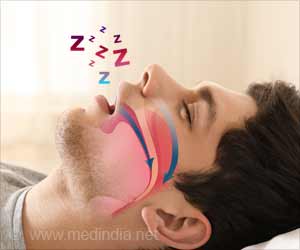 Sleep apnea is commonly found in patients undergoing cardio-oncology treatment, putting them at an elevated risk of developing medlinkcongestive heart failure/medlink due to cancer therapy, according to a new study presented at the American College of Cardiology (ACC) Advancing the Cardiovascular Care of the Oncology Patient course (!--ref1--).
h2Sleep Apnea: A New Marker for Heart Failure in Cancer Patients/h2
Sleep apnea is a disorder of altered breathing while asleep with two types, obstructive (OSA) or central (CSA)....
Sleep apnea is commonly found in patients undergoing cardio-oncology treatment, putting them at an elevated risk of developing medlinkcongestive heart failure/medlink due to cancer therapy, according to a new study presented at the American College of Cardiology (ACC) Advancing the Cardiovascular Care of the Oncology Patient course (!--ref1--).
h2Sleep Apnea: A New Marker for Heart Failure in Cancer Patients/h2
Sleep apnea is a disorder of altered breathing while asleep with two types, obstructive (OSA) or central (CSA)....
 By utilizing the findings from a standard blood test and an online tool, individuals can ascertain their elevated risk of experiencing a medlinkheart attack/medlink within six months. This tool, created by a research team at Uppsala University, aims to boost patient motivation for adopting healthier lifestyles.
Heart attacks are the most common cause of death in the world and are increasing globally. Many high-risk people are not identified or do not take their preventive treatment. Now ...
By utilizing the findings from a standard blood test and an online tool, individuals can ascertain their elevated risk of experiencing a medlinkheart attack/medlink within six months. This tool, created by a research team at Uppsala University, aims to boost patient motivation for adopting healthier lifestyles.
Heart attacks are the most common cause of death in the world and are increasing globally. Many high-risk people are not identified or do not take their preventive treatment. Now ...
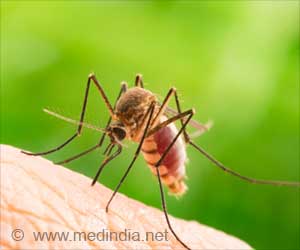 bHighlights:/bul class="group-list punch-points"
liChikungunya virus poses an increased death risk from heart and kidney complications post-infection/li
liIndividuals face an eightfold higher likelihood of mortality during the initial week and remain twice as likely even three months post-infection /li
liVigilant monitoring and access to vaccines and treatments has the potential to reduce the mortality linked with this disease/li/ul
Chikungunya virus (CHIKV) poses a significant ...
bHighlights:/bul class="group-list punch-points"
liChikungunya virus poses an increased death risk from heart and kidney complications post-infection/li
liIndividuals face an eightfold higher likelihood of mortality during the initial week and remain twice as likely even three months post-infection /li
liVigilant monitoring and access to vaccines and treatments has the potential to reduce the mortality linked with this disease/li/ul
Chikungunya virus (CHIKV) poses a significant ...
 Menopausal women (middle-aged women) who experience migraines, hot flashes, and night sweats may face an increased likelihood of suffering a medlinkheart attack/medlink, stroke, or other cardiovascular issues. However, taking proactive measures such as prioritizing adequate sleep, engaging in regular exercise, adopting a healthy diet, medlinkquitting smoking/medlink, and monitoring key health indicators like medlinkblood pressure/medlink, blood sugar, medlinkcholesterol/medlink, ...
Menopausal women (middle-aged women) who experience migraines, hot flashes, and night sweats may face an increased likelihood of suffering a medlinkheart attack/medlink, stroke, or other cardiovascular issues. However, taking proactive measures such as prioritizing adequate sleep, engaging in regular exercise, adopting a healthy diet, medlinkquitting smoking/medlink, and monitoring key health indicators like medlinkblood pressure/medlink, blood sugar, medlinkcholesterol/medlink, ...
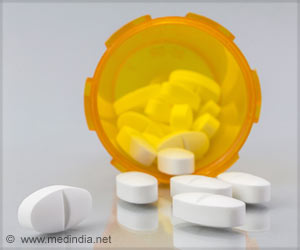 bHighlights:/bul class="group-list punch-points"li
Anabolic steroid misuse can raise heart disease risk in muscle-building young men/li
liHigh testosterone levels could trigger atrial fibrillation risk among young men with arrhythmogenic right ventricular cardiomyopathy, a genetic heart disease/li
liPublic awareness and education efforts are crucial in addressing and preventing the misuse of anabolic steroids/li/ul
The misuse of medlinkanabolic steroids/medlink (synthetic ...
bHighlights:/bul class="group-list punch-points"li
Anabolic steroid misuse can raise heart disease risk in muscle-building young men/li
liHigh testosterone levels could trigger atrial fibrillation risk among young men with arrhythmogenic right ventricular cardiomyopathy, a genetic heart disease/li
liPublic awareness and education efforts are crucial in addressing and preventing the misuse of anabolic steroids/li/ul
The misuse of medlinkanabolic steroids/medlink (synthetic ...
 medlinkFinasteride/medlink, aka Propecia or Proscar, is widely used to address male pattern baldness and enlarged prostate. Remarkably, beyond its primary functions, the drug may offer an unexpected and potentially life-saving advantage by reducing cholesterol levels and lowering the overall risk of medlinkcardiovascular disease/medlink.
These findings from a new study at the University of Illinois was published in the iJournal of Lipid Research/i (!--ref1--).
h2Finasteride's New ...
medlinkFinasteride/medlink, aka Propecia or Proscar, is widely used to address male pattern baldness and enlarged prostate. Remarkably, beyond its primary functions, the drug may offer an unexpected and potentially life-saving advantage by reducing cholesterol levels and lowering the overall risk of medlinkcardiovascular disease/medlink.
These findings from a new study at the University of Illinois was published in the iJournal of Lipid Research/i (!--ref1--).
h2Finasteride's New ...
 Scientific evidence confirms the positive impact of movement on aging bodies. A recent study challenges the popular belief of achieving 10,000 steps per day. The research, involving nearly 6,000 women aged 63-99, reveals that ban average of 3,600 steps at a normal pace correlates with a significant 26% reduction in the risk of medlinkheart failure/medlink./b (!--ref1--)
The observational study from the Women's Health Initiative specifically looked at accelerometer-measured medlinkphysical ...
Scientific evidence confirms the positive impact of movement on aging bodies. A recent study challenges the popular belief of achieving 10,000 steps per day. The research, involving nearly 6,000 women aged 63-99, reveals that ban average of 3,600 steps at a normal pace correlates with a significant 26% reduction in the risk of medlinkheart failure/medlink./b (!--ref1--)
The observational study from the Women's Health Initiative specifically looked at accelerometer-measured medlinkphysical ...
 Cedars-Sinai Warns that 1 in 5 women is at risk for medlinkcardiovascular disease/medlink, thereby emphasizing lifestyle changes as crucial prevention tactics (!--ref1--).
Experts at the Smidt Heart Institute at Cedars-Sinai who have studied progress made over decades of research say there's still a long way to go before medical science fully understands how medlinkheart disease/medlink is different in women than men.
But there is hope, according to Natalie Bello, MD, MPH, director ...
Cedars-Sinai Warns that 1 in 5 women is at risk for medlinkcardiovascular disease/medlink, thereby emphasizing lifestyle changes as crucial prevention tactics (!--ref1--).
Experts at the Smidt Heart Institute at Cedars-Sinai who have studied progress made over decades of research say there's still a long way to go before medical science fully understands how medlinkheart disease/medlink is different in women than men.
But there is hope, according to Natalie Bello, MD, MPH, director ...
 bHighlights:/bul class="group-list punch-points"
liHigh protein intake is linked to increased risk of atherosclerosis/li
liPlant-based protein sources offer heart-healthy alternatives/li
liModeration in protein consumption is crucial for cardiovascular well-being/li/ul
A recent study conducted at the University of Pittsburgh and published in the journal iNature Metabolism/i has shed light on the potential risks associated with medlinkhigh protein/medlink intake ...
bHighlights:/bul class="group-list punch-points"
liHigh protein intake is linked to increased risk of atherosclerosis/li
liPlant-based protein sources offer heart-healthy alternatives/li
liModeration in protein consumption is crucial for cardiovascular well-being/li/ul
A recent study conducted at the University of Pittsburgh and published in the journal iNature Metabolism/i has shed light on the potential risks associated with medlinkhigh protein/medlink intake ...
 An electrocardiographic imaging (ECGI) reusable vest shows promise in detecting early signs of an inherited heart condition - hypertrophic cardiomyopathy, before traditional tests can, potentially leading to earlier diagnosis and treatment.
This new study was led by UCL (University College London) researchers and published in the iJournal of the American College of Cardiology/i (!--ref1--).
h2Revolutionary ECGI Vest Advances Cardiac Screening/h2
The condition, called hypertrophic cardiomyopathy, ...
An electrocardiographic imaging (ECGI) reusable vest shows promise in detecting early signs of an inherited heart condition - hypertrophic cardiomyopathy, before traditional tests can, potentially leading to earlier diagnosis and treatment.
This new study was led by UCL (University College London) researchers and published in the iJournal of the American College of Cardiology/i (!--ref1--).
h2Revolutionary ECGI Vest Advances Cardiac Screening/h2
The condition, called hypertrophic cardiomyopathy, ...
 bHighlights:/bul class="group-list punch-points"li
Sweetened beverages raise atrial fibrillation risk by 20%/li
liPure juices lower risk by 8%; water remains the safest choice/li
liPublic health urgency is required in reducing sweetened drink intake/li/ul
A new study has shed light on a concerning health risk associated with the consumption of artificially sweetened beverages. The research, which analyzed data from nearly 202,000 individuals, found a significant correlation ...
bHighlights:/bul class="group-list punch-points"li
Sweetened beverages raise atrial fibrillation risk by 20%/li
liPure juices lower risk by 8%; water remains the safest choice/li
liPublic health urgency is required in reducing sweetened drink intake/li/ul
A new study has shed light on a concerning health risk associated with the consumption of artificially sweetened beverages. The research, which analyzed data from nearly 202,000 individuals, found a significant correlation ...
 Many adults aged 50 to 80 consume aspirin regularly to prevent heart attacks and strokes, although over half do not have cardiovascular disease, posing minimal preventive benefits and heightened bleeding risks (!--ref1--).
But many people aged 50 to 80 who said they take aspirin may not need to, the findings from the i University of Michigan National Poll on Healthy Aging /i suggest.
In all, 57% of people aged 50 to 80 who say they take aspirin regularly also said they don't have a history of cardiovascular disease....
Many adults aged 50 to 80 consume aspirin regularly to prevent heart attacks and strokes, although over half do not have cardiovascular disease, posing minimal preventive benefits and heightened bleeding risks (!--ref1--).
But many people aged 50 to 80 who said they take aspirin may not need to, the findings from the i University of Michigan National Poll on Healthy Aging /i suggest.
In all, 57% of people aged 50 to 80 who say they take aspirin regularly also said they don't have a history of cardiovascular disease....
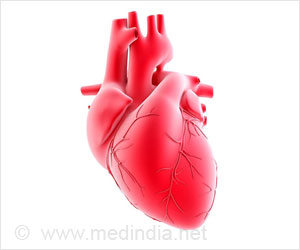 bHighlights:/bul class="group-list punch-points"liAdditives like carrageenan are linked to blood sugar fluctuations/liliEven plant-based supplements can harbor allergens like carmine/liliDr. Granger advises scrutinizing labels for quality ingredients/li/ulMaintaining optimal health is a priority for many, the allure of supplements is undeniable. From promising younger-looking skin to better cognitive function, there seems to be a supplement catering to every health need. However, ...
bHighlights:/bul class="group-list punch-points"liAdditives like carrageenan are linked to blood sugar fluctuations/liliEven plant-based supplements can harbor allergens like carmine/liliDr. Granger advises scrutinizing labels for quality ingredients/li/ulMaintaining optimal health is a priority for many, the allure of supplements is undeniable. From promising younger-looking skin to better cognitive function, there seems to be a supplement catering to every health need. However, ...








